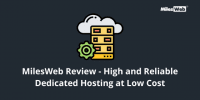Key Considerations for VPN Use in Educational Institutions

Virtual Private Networks (VPNs) are essential for ensuring the security of educational institutions' online activities. They encrypt data and provide a secure connection. Implementing a VPN can safeguard sensitive information and create a safe learning environment for all.
Key Takeaways
- VPNs ensure secure and private access to online resources and networks in educational institutions.
- Implementing strong encryption protocols and proper key management is crucial for data protection.
- Access control measures should be implemented to prevent unauthorized access to sensitive data.
- Network monitoring capabilities are essential for real-time threat detection and addressing network issues in VPN environments.
Importance of VPN in Education
Using a VPN in educational institutions is of paramount importance for ensuring secure and private access to online resources and networks. In today's digital age, where data privacy is a growing concern, protecting sensitive information has become crucial. Educational institutions handle vast amounts of personal data, including student records, financial information, and research data. By utilizing a VPN, educational institutions can safeguard this valuable data from potential threats and unauthorized access.
One of the key benefits of using a VPN in educational institutions is the ability to establish a secure connection between the user and the online learning platform. This encrypted connection ensures that all data transmitted between the user's device and the platform remains confidential and protected from prying eyes. With the increasing popularity of online learning, it's imperative to have a robust security infrastructure in place to protect sensitive information.
Furthermore, a VPN allows users to bypass restrictions and access blocked websites or content. This is particularly important for educational institutions that may have limited access to certain online resources due to geographic restrictions or content filtering. By using a VPN, students and faculty can enjoy unrestricted access to a wide range of educational materials, enhancing the learning experience and promoting academic freedom.
Benefits of VPN for Educational Institutions
Educational institutions can reap numerous benefits from implementing a VPN. Here are four advantages of VPN and how they contribute to improved network performance:
- Enhanced Security: VPNs encrypt data, making it unreadable to unauthorized users. This helps protect sensitive information such as student records, research data, and financial transactions from being intercepted or manipulated. By creating a secure tunnel between the institution's network and the users' devices, VPNs safeguard against cyber threats and ensure data privacy.
- Remote Access: VPNs allow students, faculty, and staff to securely connect to the institution's network from anywhere, enabling remote learning, collaboration, and administrative tasks. This flexibility enhances productivity and ensures that students can access educational resources and participate in online classes even when they're unable to physically be on campus.
- Unrestricted Access: VPNs bypass network restrictions imposed by firewalls or regional limitations, enabling users to access online resources and educational materials that may be otherwise blocked or unavailable in their location. This freedom of access promotes a global learning environment and enables students to explore a wider range of educational content.
- Improved Network Performance: VPNs optimize network traffic by reducing latency and congestion. By routing data through dedicated servers, VPNs can prioritize traffic and ensure a smooth online experience, even during peak usage periods. This results in faster download and upload speeds, reduced buffering, and overall improved network performance.
Implementing a VPN in educational institutions not only enhances security but also provides the necessary infrastructure for seamless remote access, unrestricted content availability, and improved network performance.
Security Considerations for VPN Implementation
When implementing a VPN in an educational institution, there are several security considerations to keep in mind.
Firstly, encryption is essential for data protection, ensuring that any sensitive information transmitted over the network is securely encrypted and can't be intercepted.
Secondly, access control measures should be implemented to restrict unauthorized access to the VPN and ensure that only authorized users can connect.
Lastly, network monitoring capabilities should be in place to detect and respond to any suspicious activities or potential security breaches.
Encryption for Data Protection
Implementing strong encryption is crucial for ensuring data protection in VPN use within educational institutions. Encryption ensures that data transmitted over the VPN is secure and can't be accessed by unauthorized individuals. Here are four key considerations for encryption in VPN implementation:
- Encryption protocols: Choose a VPN provider that supports robust encryption protocols such as AES (Advanced Encryption Standard) or SSL/TLS (Secure Sockets Layer/Transport Layer Security). These protocols provide strong encryption algorithms to safeguard data.
- Key management: Proper key management is essential for maintaining the security of encrypted data. Ensure that encryption keys are generated, stored, and distributed securely to prevent unauthorized access.
- Authentication mechanisms: Implement authentication mechanisms such as username/password combinations, digital certificates, or two-factor authentication to verify the identities of VPN users and ensure secure communication.
- Regular updates and audits: Stay updated with the latest encryption technologies and security patches. Conduct regular audits to identify any vulnerabilities or weaknesses in the encryption system and take appropriate measures to address them.
Access Control Measures
Access control measures play a critical role in ensuring the security of VPN implementation within educational institutions. By implementing access control policies and network segmentation, educational institutions can effectively manage and control user access to the VPN network.
Access control policies define who can access the network and what resources they can access. These policies help prevent unauthorized access and protect sensitive information. Network segmentation involves dividing the network into smaller, isolated segments, allowing for better control and protection of resources.
| Access Control Measures | Benefits |
|---|---|
| Access control policies | Prevent unauthorized access |
| Network segmentation | Better control and protection |
Implementing access control measures allows educational institutions to safeguard their VPN networks, ensuring that only authorized users can access sensitive data. This not only protects the institution's information but also maintains the privacy and freedom of its users. By carefully designing and implementing access control measures, educational institutions can create a secure and reliable VPN environment.
Network Monitoring Capabilities
To ensure the security of VPN implementation within educational institutions, network monitoring capabilities play a crucial role. They allow administrators to actively monitor and analyze network traffic for any potential security threats or breaches.
Here are four reasons why network monitoring capabilities are essential for maintaining a secure VPN environment:
- Real-time threat detection: Network monitoring tools enable administrators to identify and respond to security threats in real-time. By monitoring network traffic, they can quickly detect any suspicious activities or unauthorized access attempts, ensuring the protection of sensitive data.
- Performance optimization: Network monitoring capabilities provide insights into network performance. This allows administrators to identify and address any bottlenecks or issues that may affect the VPN's speed and reliability. By optimizing performance, users can access resources and applications without experiencing any disruptions.
- User authentication: Network monitoring tools aid in verifying user authentication. They ensure that only authorized individuals can access the VPN. By monitoring login attempts and user behavior, administrators can detect any unusual login patterns or potential breaches of user credentials.
- Compliance monitoring: Educational institutions often have strict compliance requirements. Network monitoring capabilities can help administrators ensure that the VPN is in compliance with relevant regulations, such as data privacy laws or industry-specific standards.
These reasons highlight the importance of network monitoring capabilities in maintaining a secure VPN environment within educational institutions.
Challenges of VPN Use in Educational Settings
One of the key obstacles faced in educational settings when using VPNs is the potential for network congestion. While VPNs offer numerous benefits, including enhanced security and access to restricted content, the increased traffic can strain network resources, leading to slower internet speeds and interrupted connections. To better understand the challenges of VPN use in educational settings, consider the following factors:
| Challenges | Implementation | Student Privacy Concerns |
|---|---|---|
| Overload of network resources | Setting up VPN infrastructure in schools can be a complex process, requiring careful planning and coordination with IT departments. The addition of VPNs can strain existing network infrastructure, leading to potential slowdowns and disruptions. | VPNs can raise concerns about student privacy. Educational institutions must ensure that appropriate security measures are in place to protect student data and comply with privacy laws and regulations. |
| Challenges | Implementation | Student Privacy Concerns |
| Difficulty in managing VPN clients | Educational institutions may face challenges in managing a large number of VPN clients across different devices and operating systems. This can require additional resources and expertise to ensure smooth operation and user experience. | Student privacy concerns may arise due to the collection and storage of personal information by VPN providers. Institutions need to carefully evaluate VPN providers' privacy policies and data handling practices to safeguard student privacy. |
| Challenges | Implementation | Student Privacy Concerns |
| Potential bypassing of content filters | VPNs can enable students to bypass content filters implemented by educational institutions. This can pose challenges in ensuring appropriate internet usage and protecting students from accessing inappropriate or harmful content. | Educational institutions must establish clear guidelines and policies regarding VPN usage to address potential misuse and ensure a safe and controlled online environment for students. |
Overcoming these challenges requires careful planning, technical expertise, and a comprehensive understanding of the potential risks and benefits of VPN use in educational settings. By addressing network congestion, implementing effective management strategies, and prioritizing student privacy concerns, educational institutions can harness the power of VPNs while ensuring a secure and productive learning environment.
Factors to Consider When Selecting a VPN Solution
When selecting a VPN solution for educational institutions, it's important to carefully consider various factors to ensure optimal performance, security, and compliance with privacy regulations.
Here are four key factors to consider in your VPN solution selection:
- Scalability: Educational institutions often have a large number of users accessing the VPN simultaneously. Therefore, it's crucial to choose a solution that can handle high traffic volumes and provide seamless connectivity for all users.
- Security: Protecting sensitive data is paramount for educational institutions. Look for a VPN solution that offers strong encryption protocols, such as AES-256, along with features like multi-factor authentication and intrusion detection systems to safeguard against cyber threats.
- Compatibility: Ensure that the VPN solution is compatible with the devices and operating systems commonly used by students, teachers, and staff. This includes laptops, tablets, smartphones, and various platforms like Windows, macOS, iOS, and Android.
- User Experience: A user-friendly interface and intuitive setup process can greatly enhance the adoption of the VPN solution. Choose a solution that provides a seamless and hassle-free user experience, allowing students and faculty to focus on their work without technical difficulties.
Best Practices for VPN Deployment in Educational Institutions
As you consider the best practices for deploying a VPN in educational institutions, it's important to ensure a seamless transition from the selection process by following key guidelines for optimal performance, security, and user experience.
Deploying a VPN in an educational institution can present some challenges, but with careful planning and implementation, these can be overcome.
One of the main VPN deployment challenges is scalability. Educational institutions often have a large number of users, including students, teachers, and staff. Therefore, it's crucial to select a VPN solution that can handle the high volume of simultaneous connections without compromising performance. Additionally, the VPN should have the capability to scale as the institution grows.
Another challenge is ensuring security. Educational institutions deal with sensitive data, such as student records and research materials. Therefore, it's essential to choose a VPN solution that provides robust encryption and authentication mechanisms to protect this data from unauthorized access.
Furthermore, the user experience is a critical factor in VPN deployment. Students and teachers should be able to connect to the VPN easily and access the required resources without any hassle. The VPN should have a user-friendly interface and support multiple devices and operating systems to cater to the diverse needs of the educational community.
Future Trends in VPN Use for Education
As educational institutions continue to rely on VPN technology for secure and private internet access, future trends suggest an increase in VPN adoption rates.
With the growing concerns over data breaches and online threats, schools and universities are recognizing the importance of implementing robust VPN solutions.
These solutions not only enhance security measures but also protect sensitive data, ensuring the privacy of both students and faculty.
VPN Adoption Rates
VPN adoption rates in educational institutions are expected to continue to rise as institutions seek to enhance their security and provide secure remote access for students and staff. Here are four key reasons why VPN use is becoming increasingly popular in educational settings:
- Enhanced Security: VPNs encrypt network traffic, protecting sensitive data from potential security breaches and unauthorized access. This is crucial in educational institutions, where student and faculty information needs to be safeguarded.
- Access to Restricted Content: VPNs enable users to bypass geographical restrictions and access content that may be blocked in certain regions. This allows students to access educational resources and research materials that may otherwise be unavailable to them.
- Remote Learning: With the increasing popularity of online learning, VPNs provide a secure connection for students accessing educational platforms from remote locations. This ensures that their data remains protected and their online activities are secure.
- Anonymity and Privacy: VPNs offer anonymity by masking the user's IP address, making it difficult for anyone to track their online activities. This is particularly important in educational settings where privacy is valued and protected.
As VPN technology continues to advance and become more user-friendly, the adoption rates in educational institutions are expected to rise further.
Security and Privacy
Educational institutions are increasingly prioritizing security and privacy in their use of VPN technology for future trends in education. This is primarily due to the growing concerns over data breaches and cyber threats that can compromise sensitive information. VPNs provide a secure and private connection by encrypting data and routing it through a remote server, effectively shielding it from potential attackers.
By using a VPN, educational institutions can ensure that student and staff data remains confidential and protected. Additionally, VPNs can help prevent unauthorized access to network resources and sensitive information.
With the rising number of cyber threats targeting educational institutions, implementing a VPN solution becomes crucial in maintaining a secure and private online environment. By embracing VPN technology, educational institutions can safeguard their networks, mitigate the risk of data breaches, and ensure the privacy of their users.
Frequently Asked Questions
How Can VPNs Help Protect Student and Faculty Privacy in Educational Institutions?
VPNs can help protect your privacy in educational institutions by encrypting your online activities, shielding your sensitive information from prying eyes. Implementing VPNs with best practices ensures the advantages of enhanced security and anonymity for both students and faculty.
Are There Any Limitations or Restrictions on VPN Use in Educational Settings?
There may be limitations and legalities to consider when using VPNs in educational settings. It's important to understand any restrictions imposed by the institution and ensure compliance with applicable laws and regulations.
What Are the Potential Risks of Using a VPN in an Educational Institution?
Using a VPN in an educational institution can pose potential risks and security concerns. It's important to consider the possibility of data breaches and unauthorized access. Stay vigilant and prioritize the safety of your information.
How Can VPNs Assist in Overcoming Geographical Restrictions for Accessing Educational Resources?
VPNs can help you overcome censorship and bypass firewalls, allowing you to access educational resources that may be geographically restricted. They provide a secure connection that masks your IP address, giving you freedom to explore knowledge.
What Are the Implications of VPN Use on Network Bandwidth and Performance in Educational Institutions?
When using a VPN in an educational institution, the implications on network bandwidth and performance must be considered. Optimizing VPN performance is crucial to ensure smooth network infrastructure and provide an optimal user experience.







